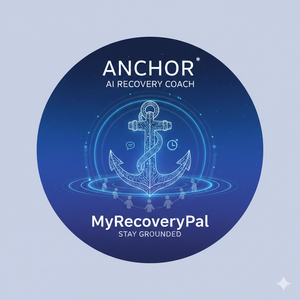
Practical Steps to Cultivate Confidence and Release Shame on Your Sobriety Journey
The Hidden Battle of Worth and Regret
You’ve traded in your last drink — congratulations! Yet far too often, newcomers trade one struggle for another: fighting low self-esteem and being haunted by guilt or shame from their addiction past. You’re not alone in feeling unworthy of the life you’re building. The good news is, these are natural stages of recovery — and learning to navigate them is what transforms sobriety from mere abstinence into genuine healing.
In this article, we’ll explore why self-esteem and shame are two sides of the same coin in recovery, pinpoint the critical moments when they arise, and reveal research-backed, actionable strategies to strengthen your sense of worth and free yourself from the shackles of regret.
1. Why Self-Esteem and Shame Are Partners in Recovery
- Self-Esteem: Your inner sense of value — knowing you deserve respect, love, and a fulfilling life.
- Guilt & Shame: Powerful emotions that surface when you confront the harm your addiction caused to yourself and others.
Recovery strips away numbing defenses, forcing you to reckon with both: you must repair your self-image while processing the fallout of past actions. Recognizing these as natural — and surmountable — stages is the first step toward true freedom.
2. When Low Self-Esteem Strikes — and How to Rise
Early Recovery (0–3 Months)
Trigger: Comparing yourself to “normal” drinkers or polished members in meetings.
Strategy: Micro-Wins Journal
- How: Each evening, record three specific things you did well that day — resisting a craving, arriving on time, reaching out for help.
- Why: Research shows that recognizing small achievements rewires your brain to notice progress instead of deficits, boosting confidence virtually overnight.
Mid-Term Recovery (3–12 Months)
Trigger: New responsibilities feel overwhelming — work projects, relationship rebuilding, or family roles.
Strategy: Skill-Building Challenge
- How: Commit to learning one new skill — time management, public speaking, or even a creative hobby — through free online courses (Coursera, Khan Academy) or community workshops.
- Why: Mastery experiences are among the strongest drivers of self-efficacy; each milestone you hit reminds you of your capability.
Long-Term Recovery (1 Year+)
Trigger: The plateau — sobriety feels stable but uninspiring.
Strategy: Mentorship & Service
- How: Volunteer to sponsor a newcomer, lead a recovery group, or participate in a service project through your church or community organization.
- Why: Helping others catalyzes purpose and cements your identity as a confident, contributing person — counteracting lingering self-doubt.
Transforming Guilt and Shame into Growth
Understanding Guilt vs. Shame
Guilt (“I did something bad”) can motivate repair.
Shame (“I am bad”) erodes self-worth and fuels relapse.
Steps to Break the Shame Cycle
1. Name and Frame Your Feelings
- How: When guilt wells up, label it: “I’m feeling guilty about that argument with my mom.”
- Why: Labeling emotions — an evidence-based practice from affective neuroscience — instantly reduces their intensity and shifts you from crash-and-burn shame to constructive reflection.
2. Make Concrete Amends
- How: Reach out to someone you hurt — family, friends, or coworkers — and offer a sincere apology or corrective action.
- Why: Studies in the Journal of Substance Abuse Treatment show that making amends increases closure, restores relationships, and cuts relapse risk by up to 30%.
3. Reframe Your Narrative
- How: Write down the lessons you’ve learned: “I made mistakes, but I’m committed to living with integrity.”
- Why: Cognitive Behavioral Therapy (CBT) helps you shift from self-punishing thoughts to growth-oriented ones, reinforcing that your past does not define your future.
4. Daily Practices for Confidence and Compassion
- Morning Affirmations: Stand before a mirror and repeat: “I am worthy of love and respect.” Studies show affirmations can reduce stress and improve problem-solving under pressure.
- Midday Gratitude Break: Pause and list three strengths you used so far today — kindness, resilience, honesty. Reinforcing strengths counterbalances negative self-talk.
- Evening Reflection: Complete your Micro-Wins Journal and one line of self-compassion: “I did my best today, and that’s enough.”
5. Community: Your Greatest Ally
Isolation deepens shame. Engaging with a peer recovery support network — whether church groups, online forums like r/stopdrinking, or local sober meetups — provides empathy and accountability. Research indicates that those with strong social support in recovery are 50% less likely to relapse.
- How to Connect: Attend weekly meetings, join service teams, or start a small reading group on recovery literature.
- Why It Works: Shared stories normalize your struggles, reduce stigma, and remind you that worthiness isn’t earned by perfection but by showing up, one day at a time.
Your Worth Is Non-Negotiable
Rebuilding self-esteem and overcoming guilt are as essential to recovery as sobriety itself. They’re not luxuries; they’re lifelines that transform a hollow “I’m sober” into a vibrant “I’m alive.” By embracing micro-wins, making sincere amends, practicing daily affirmations, and leaning on community, you’ll replace shame with self-respect and doubt with unwavering confidence.
Recovery is a journey of becoming — and you deserve every step of it.
🙏 If this helped you, please 👏 clap, share your story in the comments, and hit Follow for more insights from Normalize Sobriety!


Comments (0)
Login to leave a comment.
No comments yet. Be the first to share your thoughts!